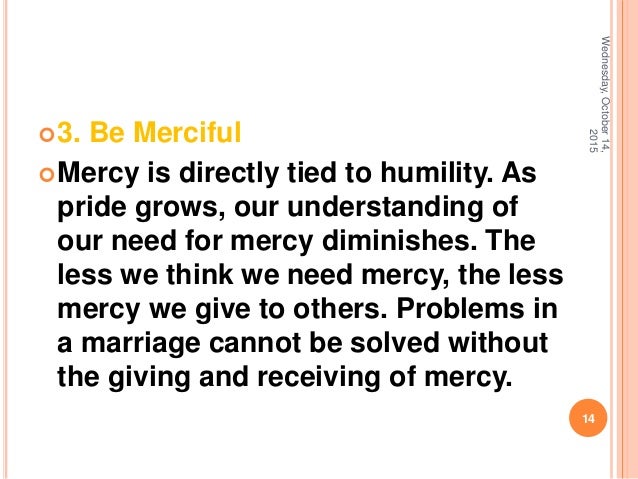In marriages, sexual intimacy is not only to multiply
and replenish the earth, it is to bring oneness and joy to the marriage. Couples know how to talk about finances, housework,
children, work, but often times they do not know how to talk about sexual relations. Many times, this leads to frustration and
even leads couples to believe they are not compatible. “Yet, in spite of the
potentially joyful aspects of sexuality in marriage, for many it is a source of
frustration and even contention. Indeed, the inability of married couples to
intimately relate to each other is one of the major causes of divorce.
President Spencer W. Kimball noted that even in our own church, “if you study
the divorces, as we have had to do in these past years, you will find there are
one, two, three, four reasons. Generally, sex is the first. They did not get
along sexually. They may not say that in court. They may not even tell that to
their attorneys, but that is the reason” (The Teachings of Spencer W. Kimball,
ed. Edward L. Kimball, Salt Lake City: Bookcraft, 1982, p. 312.) (Brotherson,
2003).
Having an open dialog with your spouse in this area
may be difficult if there is already tension and may impact communication and
can lead to insecurity, anxiety, anger, emotional alienation, even divorce. Many couples suffer silently. If you are feeling disconnected sexually in
your marriage, it may be that questions may need to be asked. Gaining knowledge and understanding how your
own body functions biologically, as well as understanding your partners responses
are essential in helping find a healthy sexual relationship.
Communicating about sexual intimacy can become more comfortable
over time, but couples must practice, and express feelings in specific
ways. They will learn to trust each
other. “So often when a husband and wife talk to each other about their sexual
needs, their conversations are … indirect, imprecise, inconclusive. Frequently
both partners are in a hurry to end the conversation, hopeful that they will
miraculously understand each other's desires without much talk … The problem is
that the less clear you are about what you do and don't want, the less likely
you are to get it. Sex can be such a fun way to share with each other and
deepen your sense of intimacy. But when communication is fraught with tension,
then frustration and hurt feelings too often result” (Gottman, 2015).

“In summary, sex should be a celebration. It comes
from God. He created our sexual appetites and natures. He has ordained us to
make love both physically and spiritually. He is pleased when He sees us bonded
together sexually, in love, for this is the plan of creation. And this plan
permits the husband and wife to jointly participate in creating new life and,
in a sense, perpetuate part of themselves into eternity through their children.
The sexual embrace should never be a chore or a duty, but a loving part of a
larger relationship. Of giving to our partner, cherishing, respecting,
protecting each other. It won't always be easy. But the rewards can be
incredibly great if we choose to make them so.” (Brotherson, 2003).
Brotherson,
S. E. (2003) They Twain Shall Be One: Thoughts on Intimacy in Marriage. Meridian Magazine. Retrieved from https://ldsmag.com/article-1-10072/
Gottman, John M. PH.D., Silver, Nan. (1999,
2015 second edition) The Seven Principles for Making Marriage Work. Harmony Books New York






